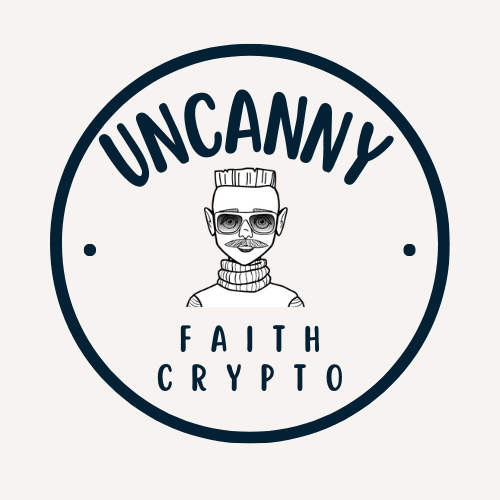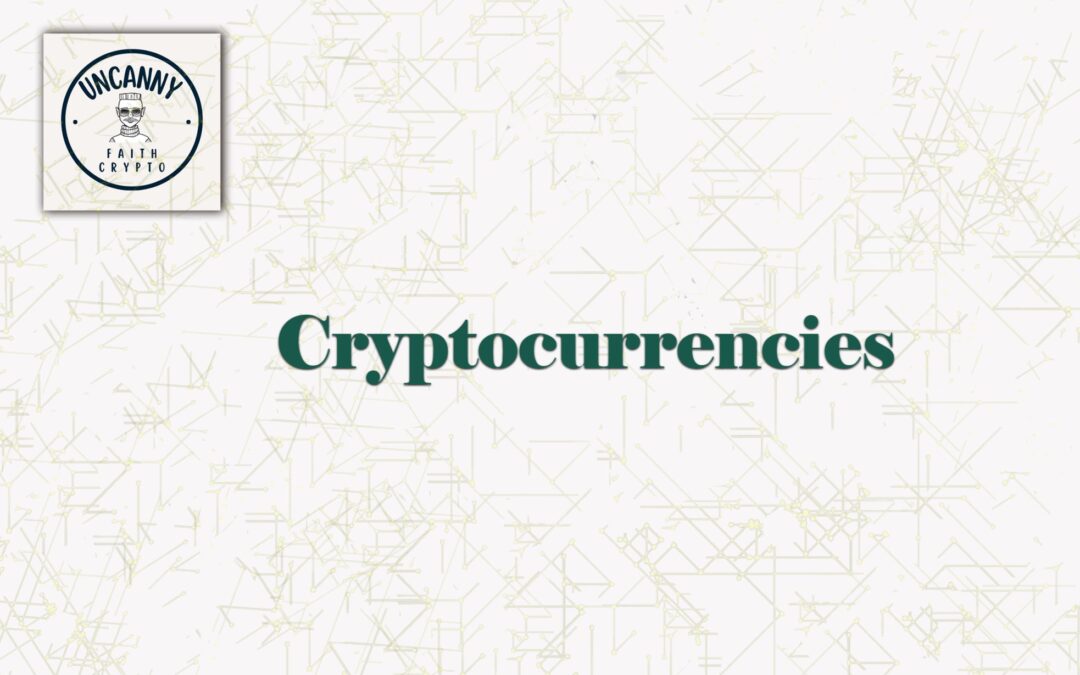Ocean Protocol 2025: Upcoming Trends and Predictions in the Evolving Data Economy
In a digital age fuelled by artificial intelligence, big data, and decentralised technology, Ocean Protocol has emerged as a key player in redefining the global data economy. As we approach 2025, the landscape of data management, sharing, and monetisation is poised for significant evolution, and Ocean Protocol is set to be at the forefront of this transformation. But what does the future hold for this decentralised data exchange platform? What trends and innovations can we expect, and how will they shape the burgeoning data economy?
This article dives deep into the world of Ocean Protocol, presenting insights into its potential trajectory by 2025, the trends redefining data decentralisation, and actionable predictions to help businesses and individuals prepare for this exciting future. Whether you’re a blockchain enthusiast, a data scientist, or just someone curious about where the tech world is heading, we’ve got you covered.
What is Ocean Protocol?
Before we dive into upcoming trends, it’s essential to understand what Ocean Protocol is and how it works. Ocean Protocol is a decentralised data exchange protocol that unlocks data for AI and other applications. Built on blockchain technology and leveraging Web3 principles, it creates an ecosystem where data ownership and privacy are prioritised. The protocol allows individuals and organisations to safely share and monetise their data, all while maintaining control over who accesses it and how it’s used.
At its core, Ocean Protocol enables:
-
- Data Monetisation: Users can share data while maintaining ownership, earning tokens in return.
-
- Privacy-Preserving Sharing: Data owners have control over how their data is shared and accessed, ensuring compliance with privacy regulations.
-
- AI Enablement: The platform supports AI development by providing access to vast, high-quality datasets.
With emerging technologies like decentralised finance (DeFi), AI-powered solutions, and edge computing driving innovation, Ocean Protocol’s framework could revolutionise how we think about data use and exchange.
The Evolving Data Economy in 2025
Data is often referred to as the “new oil,” a resource powering modern economies and innovations. By 2025, the global data market is expected to grow exponentially, reaching a projected value of $274 billion, riding on the back of advancements in AI, IoT, and smart devices.
A central challenge in today’s data economy is the lack of trust and transparency in how data is collected and used. Centralised platforms have dominated data collection for years, but their misuse of data and failure to protect user rights have driven demand for decentralisation. Ocean Protocol’s decentralised approach addresses these challenges head-on, making it a game-changer in the evolving data economy.
The following sections unpack the key trends and predictions shaping Ocean Protocol and the broader data landscape by 2025.
Key Trends Shaping Ocean Protocol and the Data Economy by 2025
1. Decentralisation Gains Mainstream Adoption
Decentralisation is no longer confined to niche conversations among blockchain enthusiasts. By 2025, decentralised platforms like Ocean Protocol are expected to go mainstream, appealing to businesses, governments, and individuals alike. Why? Because decentralisation enhances transparency, security, and efficiency in data sharing.
Ocean Protocol, in particular, empowers users to share data securely without relying on traditional data brokers like Facebook or Google. With governments increasingly promoting open data policies and users looking for trustless ecosystems, Ocean Protocol has the potential to disrupt the traditional data marketplace significantly.
2. The Rise of Data NFTs (Non-Fungible Tokens)
NFTs were the talk of the blockchain world in 2021 and 2022, mostly associated with art and digital collectibles. Yet, Ocean Protocol is pioneering an entirely new use case: data-backed NFTs. These NFTs represent ownership of data assets, enabling individuals and businesses to buy, sell, and trade data on the blockchain.
By 2025, the term “data NFTs” could become as ubiquitous as cryptocurrencies. Imagine owning a unique training dataset for AI or controlling proprietary research data, all secured as a non-fungible token on the Ocean Protocol network. This trend could revolutionise industries such as healthcare, finance, and logistics, fostering unprecedented monetisation opportunities.
3. AI and Data Symbiosis
As artificial intelligence continues its meteoric rise, high-quality data is becoming its lifeblood. Ocean Protocol is uniquely positioned to support this ecosystem, providing an abundance of privacy-preserving, secure data for training and refining AI models.
Ocean’s unique approach to data sharing – where datasets remain encrypted until access is granted – ensures that AI models can harness the information they need without compromising data privacy. By 2025, Ocean-powered AI ecosystems could emerge, driving innovation across industries while upholding ethical data usage.
4. Compliance with Evolving Privacy and Data Governance Laws
Regulatory frameworks like the EU’s GDPR and California’s CCPA place stringent restrictions on how companies collect and use consumer data. In the coming years, these laws are expected to become more stringent and widespread, pressuring companies to adopt privacy-first solutions.
Ocean Protocol already offers mechanisms that ensure compliance with privacy standards while enabling secure data exchange. By 2025, Ocean’s governance frameworks may become the industry standard for compliant, decentralised data sharing.
5. Cross-Industry Collaboration through Data Markets
Ocean Protocol fosters collaboration between industries by making high-quality data easily shareable across sectors – without compromising ownership or privacy. For instance, healthcare institutions could pool anonymised patient data to accelerate medical research, while logistics companies could share shipping data to optimise supply chains.
By 2025, global data marketplaces built on Ocean Protocol could power open innovation, unlocking new economic opportunities that didn’t exist in siloed, competitive systems.
Predictions for Ocean Protocol by 2025
Looking beyond trends, here are actionable predictions for Ocean Protocol and its ecosystem:
-
- Increased Institutional Participation: As enterprises recognise the value of decentralised data sharing, more organisations will integrate Ocean Protocol into their operations. This could be particularly relevant for sectors like healthcare, finance, and transport.
- Increased Institutional Participation: As enterprises recognise the value of decentralised data sharing, more organisations will integrate Ocean Protocol into their operations. This could be particularly relevant for sectors like healthcare, finance, and transport.
-
- Rise of Personal Data Economies: Individuals may gain the ability to monetise their own data, selling insights gathered from wearables, smart appliances, and connected devices on Ocean-based platforms.
- Rise of Personal Data Economies: Individuals may gain the ability to monetise their own data, selling insights gathered from wearables, smart appliances, and connected devices on Ocean-based platforms.
-
- Integration with DeFi: By 2025, Ocean Protocol is likely to deepen its ties with the DeFi ecosystem. Ocean tokens could increasingly be used in lending, staking, and liquidity pools, driving broader crypto adoption.
- Integration with DeFi: By 2025, Ocean Protocol is likely to deepen its ties with the DeFi ecosystem. Ocean tokens could increasingly be used in lending, staking, and liquidity pools, driving broader crypto adoption.
-
- New Governance Models: OceanDAO, Ocean Protocol’s decentralised autonomous organisation (DAO), may evolve into a more powerful governance framework influencing how data is traded, handled, and monetised globally.
- New Governance Models: OceanDAO, Ocean Protocol’s decentralised autonomous organisation (DAO), may evolve into a more powerful governance framework influencing how data is traded, handled, and monetised globally.
-
- Mainstream Interoperability: Interoperability with existing platforms and other blockchain ecosystems will expand Ocean Protocol’s reach, making it a critical bridge between Web2 and Web3.
How to Prepare for the Ocean Protocol Revolution
To stay ahead in this shifting landscape, here are some actionable steps you can take:
-
- Educate Yourself: Familiarise yourself with blockchain technology, data tokenisation, and privacy-focused platforms to understand what Ocean brings to the table.
-
- Experiment with Ocean Protocol: Create an account on Ocean Market, explore data buying or selling, and gain hands-on experience with data tokens.
-
- Collaborate Across Industries: If you’re running a business, explore how decentralised data sharing platforms like Ocean could add value to your operations.
-
- Invest Wisely: For investors, Ocean Protocol (OCEAN) tokens represent an opportunity to participate in the evolving data economy. However, do thorough research and assess market risks before making a decision.
FAQ Section
1. What is Ocean Protocol’s main goal?
Ocean Protocol aims to empower individuals and organisations by enabling them to unlock the value of data while preserving ownership, privacy, and control.
2. How does Ocean Protocol ensure data privacy?
Ocean utilises blockchain and smart contracts to enable privacy-preserving data sharing. Datasets remain encrypted, with access governed by pre-set permissions.
3. Is Ocean Protocol only for businesses?
Not at all! Ocean Protocol is designed for anyone, from individuals looking to monetise their personal data to industries seeking decentralised solutions for data sharing.
4. What are data NFTs, and why are they important?
Data NFTs represent ownership of unique data assets. They make buying, selling, and sharing data secure, transparent, and scalable, enabling new levels of data monetisation.
5. How do Ocean tokens (OCEAN) facilitate the data economy?
OCEAN tokens are the native currency of the Ocean ecosystem, used for buying, selling, staking, and governing data assets.
Closing Thoughts
Ocean Protocol is on track to redefine how we view data ownership, exchange, and value. By 2025, its innovative approach could pave the way for a more transparent, equitable, and decentralised data economy. For individuals and businesses alike, understanding and embracing this shift will be crucial to staying ahead in a world driven by data.
The question is: Are you ready to ride the wave of the Ocean Protocol revolution?
Pro Tip: Add engaging infographics of data NFTs, blockchain use cases, and Ocean’s ecosystem to enrich your readers’ experience. Don’t forget to optimise images with descriptive alt text for better SEO performance.

